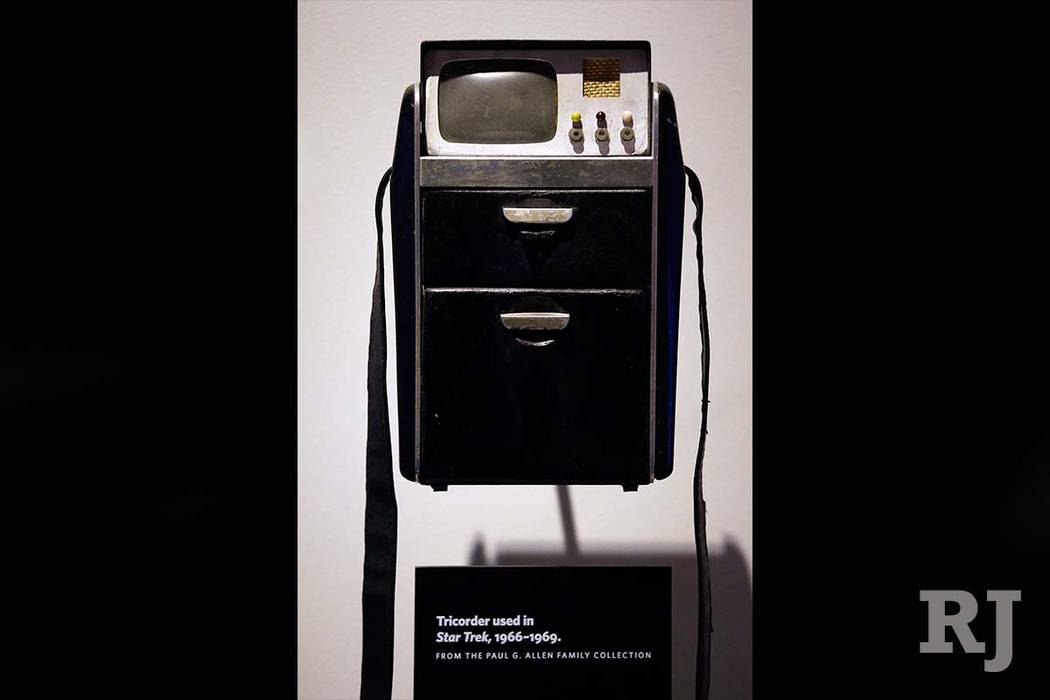‘Star Trek’-inspired tricorder may help us live long, prosper

A seven-member, self-funded team consisting of four siblings won the international X Prize tricorder consumer medical competition — yes, inspired by the “Star Trek” gizmo — besting 312 entrants from 38 countries, many with corporate and government backing.
Final Frontier Medical Devices, led by Basil Harris, a suburban Philadelphia emergency room doctor, won the $2.6 million top prize. The open competition, launched in 2012, challenged applicants to produce a lightweight, affordable health kit that diagnoses and interprets 13 health conditions and continuously monitors five health vitals. The team’s kit, equipped with noninvasive sensors, collects information that is synthesized on an diagnostic device — an iPad in the competition, but it could ultimately work on a smartphone.
Harris’ only invention before the competition was a cotton candy machine he made with his brothers in grade school.
Dynamical Biomarkers Group, which launched with a group of 50 physicians, scientists and programmers, many of them paid for their work, was awarded the $1 million second prize. The team was led by Harvard Medical School professor C.K. Peng, a physicist with a 29-page résumé, and was backed by the Taiwanese cellphone giant HTC and the Taiwanese government.
Harris and his team built the 65 required kits for testing with a trio of 3-D printers in his home office, each plastic part taking as long as 24 hours to fabricate and with his three children, ages 11 to 15, often overseeing sanding and wiring. HTC produced the models for Peng’s team.
In the original “Star Trek,” Dr. Leonard “Bones” McCoy would use the tricorder to scan and instantly diagnose a patient.
The competition’s tricorder, weighing five pounds or less, has the potential to revolutionize home health care. It can tell a person whether he or she has pneumonia or diabetes or other conditions, while monitoring the person’s blood pressure, heart rate and other health vitals. Additionally, it can share real-time information with medical professionals and could help millions of patients in medically underserved communities.
And it would arrive 250 years ahead of the one imagined in the original “Star Trek.”
The X Prize, funded by the Qualcomm Foundation, has committed $3.8 million toward continued consumer testing and development for the two top teams and four semifinalists. The organization will also provide both groups with support in Food and Drug Administration testing, in securing production and marketing, and in creating a documentary and museum exhibit about the tricorder’s potential.
Harris has applied for seven patents, including a potentially revolutionary device for testing blood, glucose, hemoglobin and white-blood cell count by using a finger cuff instead of the lancet that can be the bane of a diabetic’s existence.
The global market is large enough to support both tricorders, both team leaders said before the announcement. The companies that manufacture the products stand to make millions.
Harris’ tricorder has the capability of diagnosing 34 conditions. “Without the weight limit, we could perhaps test for 50 diseases,” Peng said.
Harris recalled how he felt when he entered the competition four years ago.
“It was intimidating because there were all these groups being backed by large corporations,” he said before the prize announcement. “But we were always thinking beyond the X Prize. We’ve met our objectives. We’ve made something worthwhile.”












